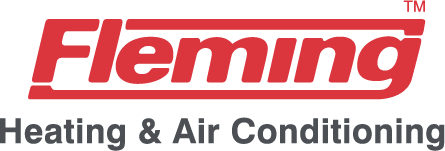
We spend a good majority of our time inside. As a matter of fact, the Environmental Protection Agency (EPA) has estimated being indoors comprises 90% of our schedule. Having said that, the EPA also has determined your indoor air can be three to five times worse than outdoors.
That’s because our houses are securely sealed to increase energy efficiency. While this is great for your energy expenses, it’s not so great if you’re amid the 40% of the population with respiratory allergies.
When outdoor ventilation is restricted, pollutants such as dust and volatile organic compounds (VOCs) can get stuck. Consequently, these pollutants might worsen your allergies.
You can improve your indoor air quality with fresh air and usual cleaning and vacuuming. But if you’re still having problems with symptoms when you’re at your residence, an air purifier might be able to provide relief.
While it can’t remove pollutants that have gotten trapped in your furniture or flooring, it may help clean the air circulating across your residence.
And air purification has also been scientifically proven to help lower some allergic symptoms, according to the American College of Allergy, Asthma and Immunology. It may also be appropriate if you or someone in your household has lung issues, like emphysema or COPD.
There are two options, a portable air purifier or a whole-home air purifier. We’ll examine the advantages so you can determine what’s correct for your home.
Whole-House Air Purifier vs. Portable Air Purifiers
A portable air purifier is for one room. A whole-house air purifier works with your heating and cooling unit to purify your complete residence. Some types can work independent when your heating and cooling unit isn’t operating.
What’s the Best Air Purifier for Allergies?
Look for an option with a High Efficiency Particulate Air (HEPA) filter. HEPA filters are placed in hospitals and deliver the most comprehensive filtration you can find, as they trap 99.97% of particles in the air.
HEPA filters are even more useful when combined with an ultraviolet (UV) germicidal light. This powerful blend can destroy dust, dander, pollen and mold, all of which are common allergens. For the greatest in air purification, consider equipment that also has a carbon-based filter to decrease household odors.
Avoid using an air purifier that generates ozone, which is the top element in smog. The EPA cautions ozone may worsen respiratory troubles, even when released at minor amounts.
The Allergy and Asthma Foundation of America has compiled a list of questions to think over when purchasing an air purifier.
- What can this purifier take out from the air? What doesn’t it take out?
- What’s its clean air delivery rate? (A bigger figure means air will be purified more rapidly.)
- How often does the filter or UV bulb need to be switched]? Can I do that on my own?
- How much do spare filters or bulbs cost?
How to Reduce Seasonal Allergy Symptoms
Want to receive the {top|most excellent|best] outcome from your new air purification unit? The Mayo Clinic suggests completing other measures to reduce your exposure to problems that can cause seasonal allergies.
- Stay indoors and keep windows and doors shut when pollen counts are heightened.
- Have other household members mow the lawn or pull weeds, since these jobs can aggravate symptoms. If you must do this work yourself, consider wearing a pollen mask. You should also bathe without delay and change your clothes once you’re completed.
- Avoid hanging laundry outside your home.
- Use your air conditioner while at your house or while driving. Consider adding a high efficiency air filter in your residence’s heating and cooling equipment.
- Balance your house’s humidity saturation with a whole-house dehumidifier.
- Hardwood, tile or linoleum are the best flooring kinds for lowering indoor allergens. If your residence has carpet, use a HEPA filter on your vacuum cleaner.
Let Our Professionals Manage Your Indoor Air Quality Requirements
Want to move forward with getting a whole-house air purifier? Give our experts a call at 877-389-2465 or contact us online to request an appointment. We’ll help you locate the ideal system for your residence and budget.


